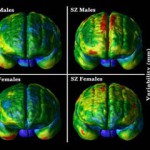
In yesterday’s blog I noted the level of professionalism and service that was accorded to veterans in the VA system after World War II. My grandfather, a World War II vet, received one of the earliest heart pacemakers as well as top-notch cardiac care, all at no cost (although one might view the treatment as […]
By:
William Van Ornum, Ph.D.

Some occupations appear to put persons employed in them at risk for eating disorders. Flight attendants, dancers, actors—persons in these lines of work must maintain unforgiving standards of weight and general appearance in order to ply their trade. As such, they may employ tactics of severe calories-restriction or eating, and then throwing up. (Binging-and-purging as […]
By:
William Van Ornum, Ph.D.

Many years ago, in the little neighborhood where I grew up in Chicago, the Memorial Day parade was a major event. Not only did it mark an unofficial beginning of summer, it was an opportunity to see veterans from many wars, marching together, and being honored by the entire neighborhood. The soldiers who had served […]
By:
William Van Ornum, Ph.D.

When I worked in the Astor Day Treatment Program many years ago, our program shared a large inner-city school building with a Head Start Program. It was heartwarming to see young children learning the skills and developing the kinds of relationships that would lead to later success in life. Many didn’t get proper nutrition and […]
By:
William Van Ornum, Ph.D.

Antipsychotic medications have an interesting history. In the early 20th century, Thorazine was used as an anesthetic during surgery. In the 1940s, a patient with schizophrenia found that after surgery that the delusions and hallucinations had disappeared. Within a few short years this medication was being used for treatment of schizophrenia and two decades later […]
By:
William Van Ornum, Ph.D.

Faculty of the Harvard Medical School note that Patient Outcomes Research Team (PORT) Treatment Recommendations for Schizophrenia have been updated: “The Schizophrenia Patient Outcomes Research Team (PORT) has issued updated treatment recommendations that not only include detailed advice about medication and psychosocial treatments but also address, for the first time, common problems in this population […]
By:
William Van Ornum, Ph.D.

Here are some new books on counseling by members of the American Counseling Association, as described in the February 2012 edition of Counseling Today: Married to the Enemy: A Guide to Overcoming the Obstacles to Intimacy When We are Raised in a Culture that Uses Stereotyping and Sexism to Divide Us By Dawn Kozarian and […]
By:
William Van Ornum, Ph.D.

Irvin D. Yalom, one of the most accomplished group therapists of his generation, recently offered the opening keynote at the recent 2012 American Counseling Association Convention, held March 21-25 in San Francisco, California. Yalom is well-known for his many books, including The Theory and Practice of Group Psychotherapy, cited by the Journal of the American […]
By:
William Van Ornum, Ph.D.

Today on Easter Sunday Erich Fromm‘s The Revolution of Hope offers us a discussion on the paradox and need for hope in human affairs, Resurrection, as well as psycho-spiritual renewal. In this optimistic work, the noted humanist draws upon religious traditions to help everyone in our secular world.
By:
William Van Ornum, Ph.D.

We’ve looked at Elaine Aron’s research on Highly Sensitive People (HSP) and how this is related to introversion. Susan Cain, author and speaker, offers more thoughts on this topic in March 26, 2012 cnn.com Introverts Run the World Quietly.
By:
William Van Ornum, Ph.D.

Sometimes when we feel strongly about something we throw all our energies into one passionate viewpoint. The often perceived overuse of anti-psychotic medication in an “off-label” use in nursing homes is one such example. “Off-label” use means that a drug is being used for purposes other than what is was originally intended. Anti-psychotic drugs are […]
By:
William Van Ornum, Ph.D.

The Individuals with Disabilities Act (IDEA) lists conditions present in a child that can qualify him or her for special services in the educational system in preschool. These are: *Chromosomal Abnormalities (e.g., Down syndrome) *Syndromes (e.g., fetal alcohol syndrome) *Neuromuscular Disorder (e.g., cerebral palsy, spina bifida) *Central nervous system (CNS) abnormality (e.g., caused by bacterial/viral […]
By:
William Van Ornum, Ph.D.

There are occasions when a child will need to be tested—not by a school or clinical psychologist, but by a neuropsychologist. This occurs when a child displays a brain-based disorder, which can mean an entire spectrum of disorders. Learning disabilities, developmental disabilities, head injuries, cancer, and even gunshot wounds are among the kind of problems […]
By:
William Van Ornum, Ph.D.

One of the anxiety disorders classified in the DSM-IV-TR is Social Phobia. This can be more deleterious than, say a snake phobia—a social phobia can cause withdrawal from so many important events in one’s life. Social phobia can include fear and avoidance of social situations because of fear of scrutiny and judgment. The person recognizes […]
By:
William Van Ornum, Ph.D.

What Freud called “free floating anxiety” is now known in the DSM-IV TR as Generalized Anxiety Disorder. It’s excessive worry that can’t be controlled by the person who is experiencing it. Symptoms may include restlessness, fatigue, difficulty concentrating, irritability, tension, and sleep disturbances; when several of these reach the point of interfering with an important […]
By:
William Van Ornum, Ph.D.

Many people still have the idea that psychological testing is mostly practiced in clinics and hospitals, and have images of psychologists sitting with clipboards giving Rorschach Inkblot tests and intelligence tests. In actuality, most psychological testing is now done in schools, and it has a preventive function: to identify mental retardation, learning disabilities, emotional disorders, […]
By:
William Van Ornum, Ph.D.
The American Psychological Association has announced, in the January 2012 issue of American Psychologist, “Guidelines for Assessment of and Intervention With Persons of Disabilities.” This document lists twenty-two practice-guidelines for psychologists who work with persons displaying disabilities of various kinds. The task force for this report was chaired by Kurt F. Geisinger of the University […]
By:
William Van Ornum, Ph.D.

Lynne Shallcross, writing in the January 2012 issue of Counseling Today (a journal of the American Counseling Association), reports on research from the Stanford Forgiveness Project that shows that learning to forgive others lessens the amount of hurt, anger, and depression that people experience. She notes the work of Frederick Luskin, a director of the […]
By:
William Van Ornum, Ph.D.

Many remember Curt Schilling for his postseason successes with the Boston Red Sox, including one in which he pitched while in pain and with a bloodied sock. Schilling recently announced that he has formed his own video-game company, which will be releasing a fantasy-oriented game for gamers. The story behind the story here is that […]
By:
William Van Ornum, Ph.D.

In the recent yearly “Reports of the Association” issue of the American Psychologist (December 2011), the American Psychological Association announced “Practice Guidelines Regarding Psychologists’ Involvement in Pharmacological Issues.” This report notes several factors that will make psychologists more involved in medication-management issues. One survey noted that the number of Americans using antidepressants increased from 6.7 […]
By:
William Van Ornum, Ph.D.

Ann Carrns, writing in the January 11, 2012, New York Times, notes a new financial tool, one geared for families with individuals who have special needs: “Families with children who have special needs or disabilities face even bigger hurdles than most people when it comes to planning for their financial futures. Merrill Lynch Wealth Management […]
By:
William Van Ornum, Ph.D.
Alcohol, cocaine, hallucinogens, marijuana, and opiates have had a varied and ambiguous legal and political history prior to the 21st century, and these substances will continue to need study, examination, policy, and law-making into the 21st century and beyond. Dwight Vick and Elizabeth Rhoades have written Drugs and Alcohol in the 21st Century: Theory, Behavior, […]
By:
William Van Ornum, Ph.D.
The December 22, 2011, edition of the New York Times brings out another article on the problems and abuses in New York State public groups homes where developmentally disabled persons reside. It is important to note that the focus of the NYT articles has been on “public” rather than private group homes. Many of the […]
By:
William Van Ornum, Ph.D.

Here is a letter I received from Jesse Close: Dear William: Share your story with Bring Change 2 Mind. I was 47 by the time I was properly diagnosed with bipolar disorder. For most of my life, my illness went undiagnosed and untreated. Life is much better now. A proper diagnosis and treatment helped tremendously, […]
By:
William Van Ornum, Ph.D.
Among the millions of Facebook responses generated each day, some are posted by persons who display varying degrees of suicide potential and risk. In an attempt to deal with this constructively, Facebook (according to an article in the December 10, 2001, Boston Globe) will begin a service in which Facebook users can let Facebook know […]
By:
William Van Ornum, Ph.D.

In most cases psychiatric drugs are not valuable commodities on the street: antipsychotics and antidepressants with names such as Thorazine, Haldol, Resperidal, Tofranil, SSRIs, Wellbutrin, Abilify, Lithium, and others generally must build up a therapeutic dosage in the bloodstream to become effective. There is no immediate “rush” or feeling of euphoria. In acute-psychiatric illness, a […]
By:
William Van Ornum, Ph.D.

Hudson River Psychiatric Center was a massive development built in the 19th century in Poughkeepsie, New York. The solid-brick buildings, many with iron window bars to prevent escapes, formed a city unto itslef, with capacity being over 5,000 patients who required hospitalization from illnesses we now term schizophrenia, bipolar disorder, psychotic depression, late-stage alcohol and […]
By:
William Van Ornum, Ph.D.

What are mental bears? A person who is asked NOT to think aloud about a white bear will more often than not mention this same white bear: at least once a minute. So “white bears” have come to mean all sorts of unwanted thoughts that cause annoyance to even extreme frustration to those who experience […]
By:
William Van Ornum, Ph.D.
For the past several months, the New York Times has been running a series of articles on people who experience severe psychiatric illness; and who, by dint of their own motivation, creativity, and resilience, are able to lead productive lives despite the ongoing burden. On November 27, 2011, the front-cover story features Mr. Milt Greek, […]
By:
William Van Ornum, Ph.D.
From the 14th edition of Abnormal Psychology by James N. Butcher, Susan Mineka, and Jill M. Hooley (Boston: Allyn and Bacon): “The concept of mental disorder, as we have seen, suffers from the lack of a truly objective means of what is disordered and what is not. It is also in the financial interests of […]
By:
William Van Ornum, Ph.D.
« Previous
1
2
3
4
5
…
8
Next »
































 Host Companion
Host Companion